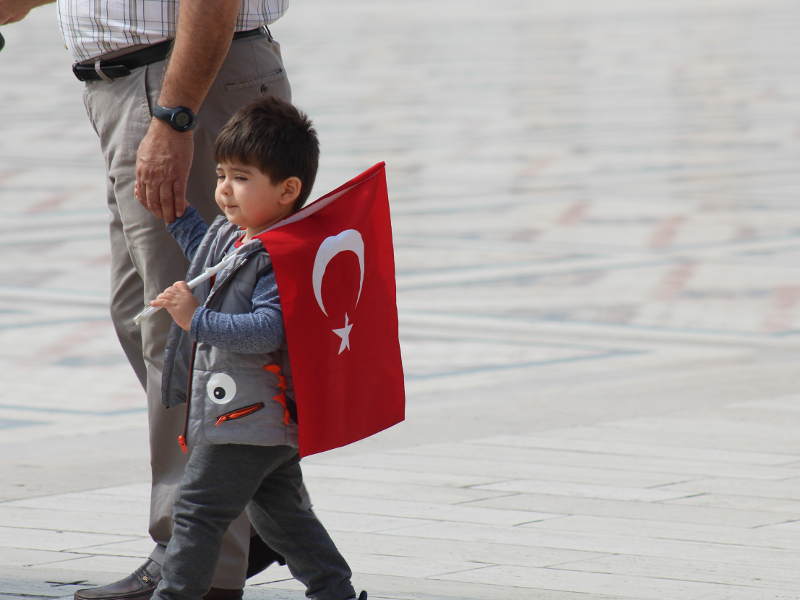Christians are the most persecuted minority group in Turkey in 2023
A report by the Freedom of Belief Initiative shows the extent of the problem. After Christians come Jews, Alevis, Yazidis, and atheists. Especially targeted are cemeteries, places of worship, homes, and schools linked to religious groups. Anti-Jewish violence has escalated since Israel's war in Gaza.
Istanbul (AsiaNews) – Christians are the minority group that suffered the most from sectarian attacks in Turkey last year, this according to a recent report by the Freedom of Belief Initiative, which documents scores of violent hate crimes against religious groups, especially Christians and Jews.
At least 47 sectarian crimes or incidents are reported in Hate Crimes in Turkey Based on Religion, Belief, or Non-Belief, whose aim is to ensure that such offences do not go unpunished.
Christians are the most persecuted group, followed by Jews, Alevis, Yazidis, and atheists, based on data from media monitoring and information from religious communities.
According to the study, the number of violent episodes against Protestants and Jews was up last year compared to the past.
As in previous years, the Turkish justice system failed to address the full extent of the problem, resulting in widespread impunity.
Report author Funda Tekin points out that hate and sectarian offences against individuals, communities, belief-based institutions, or atheists remain a significant human rights issue in Turkey today.
The documented episodes suggest that victims and groups associated with them do not enjoy the same rights as the rest of the population, which is a substantial barrier to social peace.
With respect to religious group or affiliation, Christians were victims of 22 attacks in 2023; Jews follow with 14; Alevi, seven; Muslims, four; Yazidi two, and atheists, one.
Some 26 cases involved threats or threatening behaviour, 11 violent assaults, nine documented cases of attacks on places of worship or cemeteries, at least seven cases of damage to property, three verbal attacks, and one episode of sexual harassment.
A review of data from past years indicates that attacks on cemeteries, places of worship, homes or schools linked to religious or faith communities are among the most frequent.
Since 2020, the most targeted groups have been Christians (52 incidents), Alevis (42 incidents) and Jews (23 incidents), with persistent bias or hostility towards these minority groups.
The report notes that hate crimes are generally underreported and under-recorded, with official figures only a fraction of actual incidents.
The main barriers to reporting hate crimes include: victims accustomed to bias-motivated actions or with a high threshold of tolerance, fear of social exclusion that leads people not to report, concern that complaints are not taken seriously or that they may lead to further victimisation, including by law enforcement.
Certain locations associated with religious groups have been attacked repeatedly, a sign of systematic threats or pressure on specific individuals or groups.
The report points out that hate crimes against Protestants, Assyrians, and Yazidis have become systematic and harassment recurrent.
In particular, the increase in attacks against Protestants may be partly due to media bias and hateful rhetoric. Since 2019, about 250 Protestants have been deported or have had their visa applications rejected on "security" grounds.
This attitude by the authorities parallels the frequent representations of Protestants as a "threat" to Turkish society due to their "missionary activities".
Local newspapers sometimes provide addresses of churches and target places of worship.
Lastly, violence against Jews has accelerated following Israel’s war against Hamas in Gaza, in response to the terrorist attack of 7 October 2023.
Incidents in schools where Nazi symbols were used underscore the need for an inclusive, pluralistic, and anti-discrimination educational system and curriculum to ensure a safe school environment.
18/04/2022 18:26
23/05/2019 13:37







.png)












